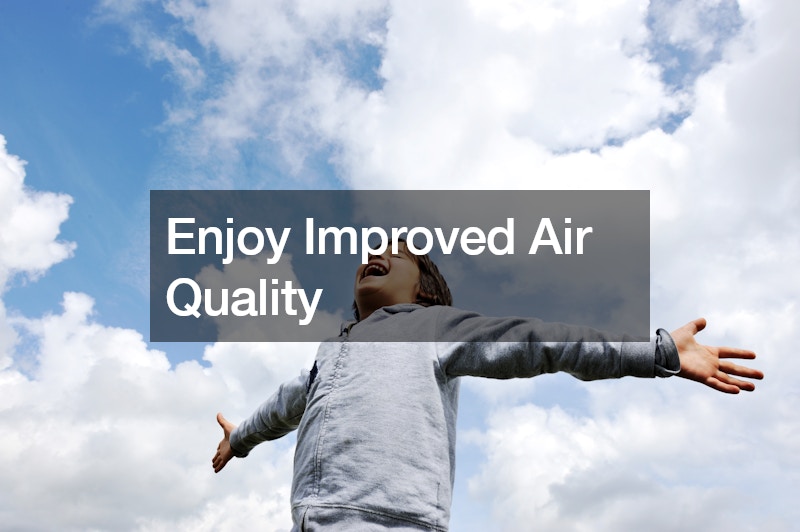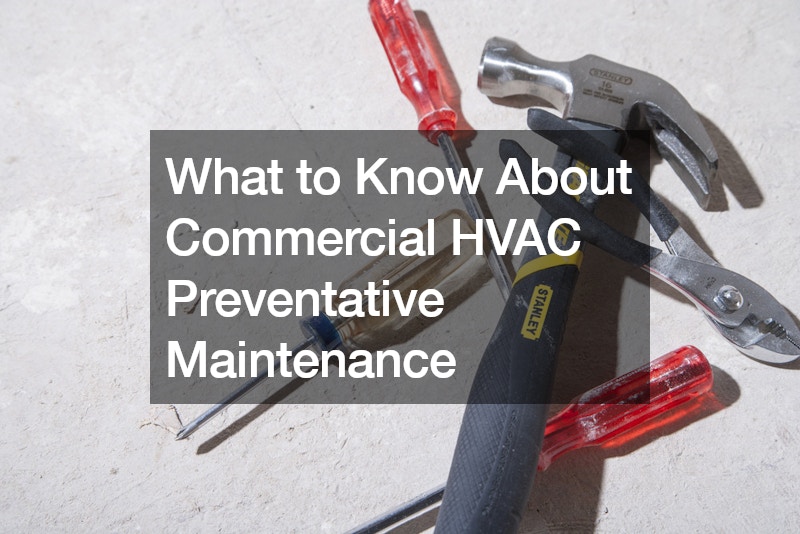When considering the operation of a commercial building, the efficiency and longevity of the heating, ventilation, and air conditioning (HVAC) system are paramount. An effective preventive maintenance program is crucial not only for ensuring optimal performance but also for extending the lifespan of the HVAC equipment. Here’s a comprehensive overview of what to know about commercial HVAC preventative maintenance.
Understanding Preventative Maintenance
Preventative maintenance refers to the routine inspection, servicing, and repair of HVAC equipment to prevent sudden failures and ensure it runs efficiently. This proactive approach focuses on maintaining the components of the HVAC system before issues arise, thus minimizing downtime and repair costs.
Regular maintenance is designed to preserve and enhance equipment efficiency, safety, and reliability.
Benefits of Preventative Maintenance
Reduced Repair Costs: Regular maintenance helps identify and resolve minor issues before they evolve into major problems that are costly to repair.
Increased Energy Efficiency: Well-maintained systems operate more efficiently. Clean and well-lubricated parts mean the system uses less energy to heat or cool the building, leading to lower utility bills.
Extended Equipment Lifespan: Routine maintenance extends the lifespan of the HVAC system, delaying the need for costly replacements.
Improved Air Quality: Regular cleaning and replacement of filters in your HVAC system ensure better indoor air quality, reducing potential health risks associated with pollutants and allergens.
Compliance with Warranty Requirements: Many HVAC systems come with warranties that require regular maintenance. Failing to adhere to these requirements can void warranties, leaving the owner to bear the full costs of any repairs.
Key Components of Preventative Maintenance
1. Air Filters: One of the simplest yet most crucial tasks is replacing or cleaning air filters. Clogged or dirty filters force HVAC systems to work harder, which can lead to overheating and increased energy consumption.
2. Calibration of Thermostats: Ensuring that thermostats are properly calibrated is essential for maintaining the desired temperature without overworking the system.
3. Inspection of Electrical Components: Electrical connections should be inspected regularly for signs of wear and tear. Loose connections can lead to short circuits and reduce the lifespan of major components.
4. Cleaning of Coils and Fans: The condenser and evaporator coils, as well as fans, should be kept clean to ensure efficient airflow and heat absorption.
5. Checking Refrigerant Levels: Proper refrigerant levels are essential for the efficient operation of air conditioning units. Too much or too little refrigerant can lead to inefficient cooling and increased energy costs.
6. Inspection of Ductwork: Leaks in ductwork can significantly decrease system efficiency. Sealing and insulating ducts can improve the efficiency of air distribution and enhance overall energy efficiency.
When to Schedule Maintenance
The frequency of preventative maintenance can vary based on several factors including the age of the system, manufacturer recommendations, and usage patterns. However, it is generally recommended that systems undergo comprehensive check-ups at least twice a year—once in spring before the cooling season begins and once in fall before heating demands increase. Additionally, filters should be checked monthly and replaced as needed.
Choosing a Service Provider
Selecting the right HVAC service provider is crucial. Look for certified technicians who have experience with commercial HVAC systems similar to yours. A reputable provider will offer a comprehensive maintenance plan tailored to your specific needs, helping to ensure that all aspects of your HVAC system are evaluated and maintained regularly.
Preventive maintenance is an investment in the efficiency and longevity of your HVAC system. By ensuring that your system is regularly inspected and maintained, you not only save on energy and repair costs but also contribute to a more comfortable, safe, and healthy environment for occupants. Remember, the goal of preventive maintenance is to address potential problems before they become actual ones, promoting uninterrupted operation and peace of mind.
Moreover, implementing a robust preventive maintenance program can also yield significant returns on investment by mitigating operational risks. Proactive measures reduce the likelihood of HVAC failures that can disrupt business operations and incur unexpected expenses. It also underscores a commitment to sustainability, as a well-maintained system consumes less energy and reduces the carbon footprint of your commercial establishment. Thus, ensuring regular maintenance of your HVAC system isn’t just a technical necessity—it’s a strategic business decision that enhances operational efficiency and supports environmental responsibility.
Watch the video above to learn more about commercial HVAC preventative maintenance!
.





